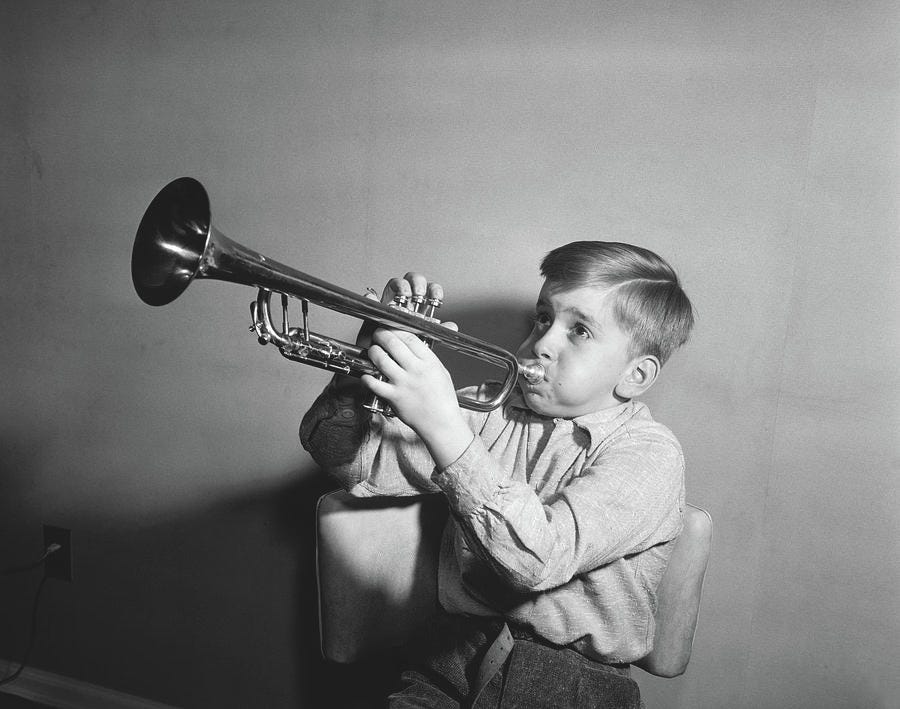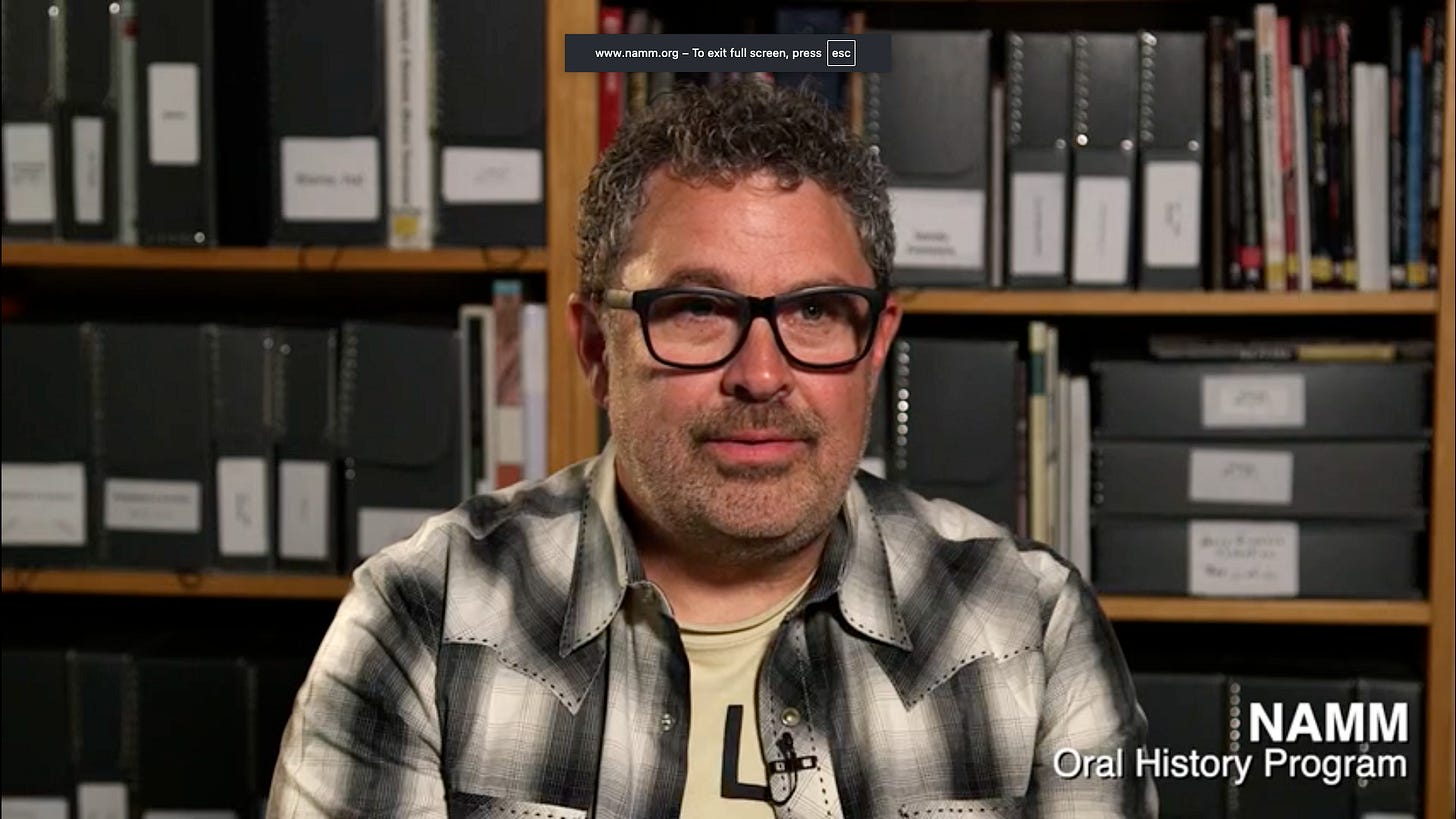Careers Are Weird
Or, How I Got Into the Guitar Business
I’ve never been comfortable saying something like “my career.” That feels weird. Talking about what I do in a possessive sense makes it feel separate from “my life” and makes “me uncomfortable.” Whatever I’m doing for a job is however I happen to be living my life at that place and time.
That said1, I’ve had a number of experiences most people would consider to be careers. This piece is actually about one of them. But on my way to thinking about careers, I can’t help but think about passions. What I’m thinking about now is how my multiple careers would be nothing without my passions, and vice versa. The two go together.
I’ve had two passions in my life. Both of which began in elementary school. I like that I’ve kept these interests for basically my whole life. They feel like they’re mine. Yeah, I’ve had support; patronage, even. But I feel like I’ve pushed these two throughlines forward on my own power. I showed up. I’ve chased them down and kept them close to me as part of who I am. They’ve always been there.
Let’s call them throughlines.
The first throughline is writing. I won my first writing contest in third grade. It was an essay about Matthew Henson, the first Black man to reach the North Pole. The piece was exuberant, celebratory, admiring in the way of a nine year old and including artwork by the author. The twenty dollar prize was delayed by a few weeks as the principal “couldn’t believe it was you [me] who wrote it.” Her words, my life.
The second throughline is music, as in the playing of. I’ve played music consistently starting at the age of ten blowing the cornet in the school band. For my first concert in front of an audience I had a solo in the old twelve-bar stomper “The Boogie Woogie Man.” The volume and the energy were completely different from boring band class. I was so jazzed and smiling so hard that I could barely make my horn work. Volume turned out to be my fallback strategy, and not for the last time.
I could say that while my throughlines have sustained me, my careers have maintained me. Neither writer or musician provided the kind of life I needed. Poverty gives me a stomach ache. It was therefore up to the day job to fuel the passions
While I was a musician I had various demeaning minimum wage jobs. Rock star at night, making sandwiches in the morning. When I quit music my dad gave me a job in his office. I stuck that out until 2005 after eight years and some wacky twists and turns which I should write about another time (anyone interested in The Dark Side of the Sunday Coupons?). And then, famously, in 2010, I tripped sideways into one of the biggest tech industry software successes in all of business history. I am definitely writing about that.
But what, every single one of you is asking, happened in the intervening years between the coupons and the startup?
I’m now ready to talk about it. I’ve done enough healing. I’m far enough away from it to say it was a cool experience. I’m honest enough to say: I lost my shirt. I made a heck of a lot of money, it was just for other people. I got ripped off, royally. Of course, I met Eddie Van Halen, John Mayer, and a laundry list of other rock stars. My instruments were on late night television and toured the world. I also spent a lot of time in a closet in Irvine on the phone with the factory in Korea. And I wrote a book and lived through The Night of Blood.
In other words, I worked in the guitar business. And lived to tell the story.
Click the photo of yours truly to hear how it happened:
They always say, “If you want to make a million dollars in the guitar business, bring two million.” Careers, I think, are weird. Passions, I feel are cool. I know you need both.2
My mom, may she rest in peace, hated this transitional phrase with a passion. No grammarian, she did have a highly customized hair trigger on her personal umbrage response mechanism. In her honor I plan to use “That said” at every opportunity given me in this human lifetime. I’d do this if she were still here, too.
Thank you to Dan Del Fiorentino for doing this interview. After ten years of me being behind the camera he got me in front. (I forgot to mention another sideline I have is interviewing famous musicians. You really should check out the NAMM Oral History Archive. It’s one of the biggest repositories of human stories in the world. And all about music, no less. To be a part of it is a stone groove, which is how Dan might put it.)





